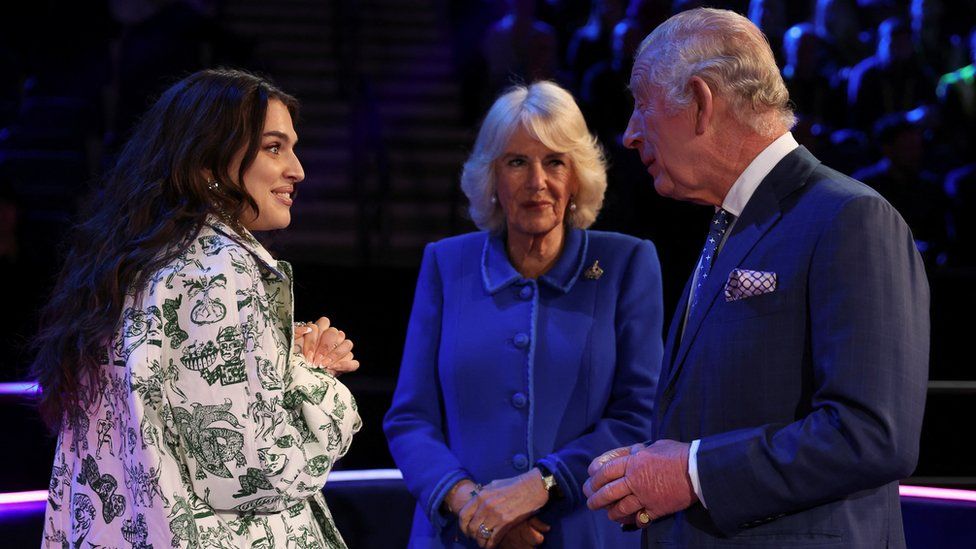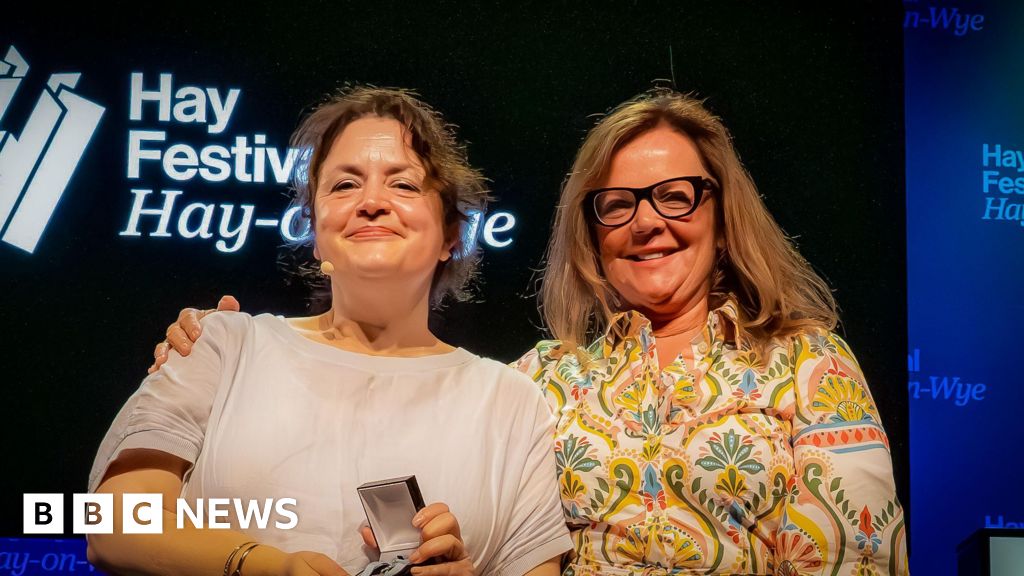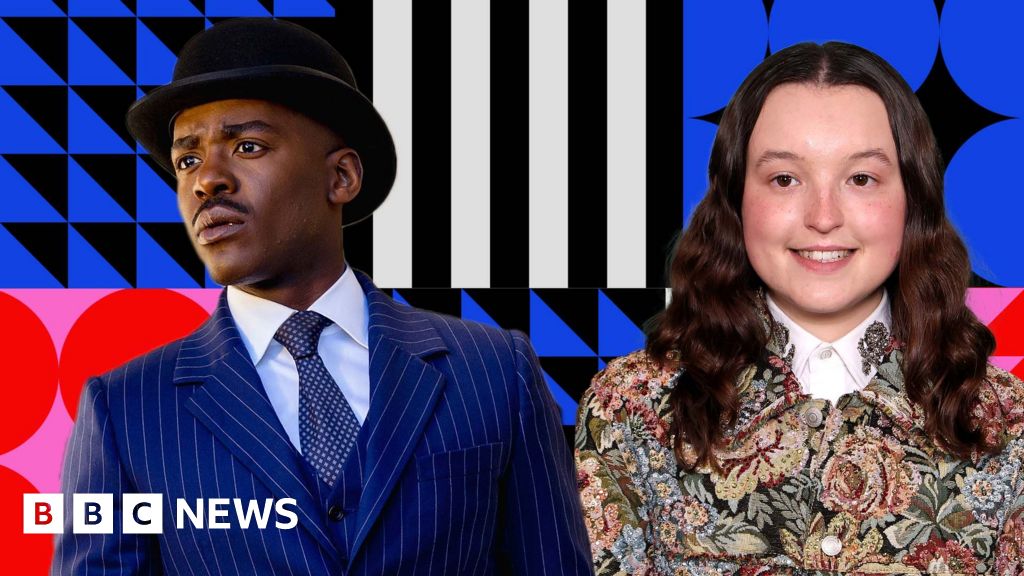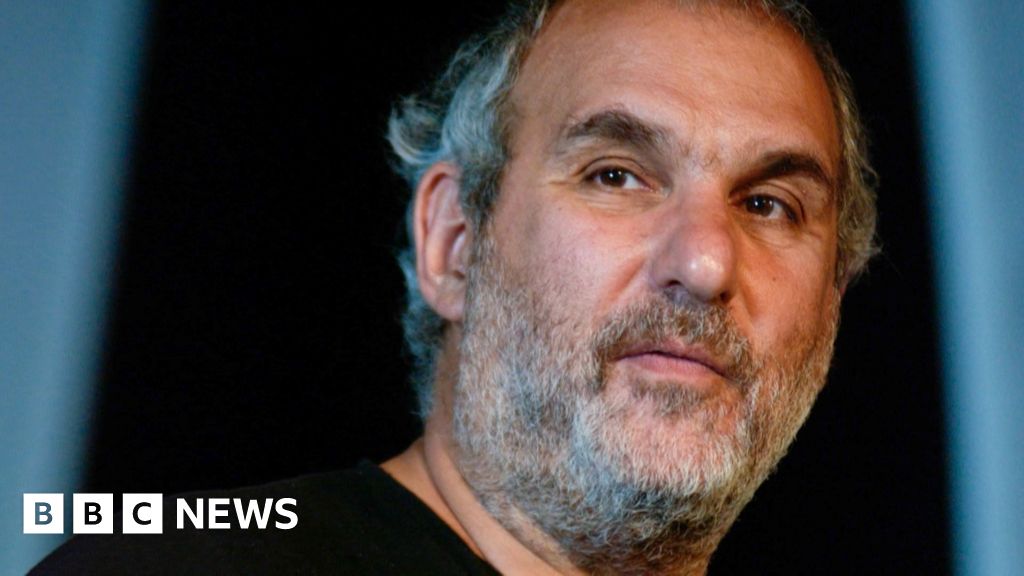ARTICLE AD BOX
 Image source, Reuters
Image source, Reuters
The King told Mae Muller he would be tuning in to Eurovision a week after his coronation
By Daniel Rosney
Eurovision reporter
King Charles III has told the UK's Eurovision entrant Mae Muller he will be "egging" her on and watching next month's contest "with great interest".
The King and Queen Consort met the singer when they visited the venue in Liverpool and unveiled the event's set.
Camilla said "no pressure" to Muller, who replied: "It feels like a good energy this year, no nil points."
She added: "As long as I can get up there and say it's the best I've ever done it, I'll be pleased."
The venue will stage the first semi-final in less than two weeks, as the UK hosts the annual competition on behalf of last year's winners Ukraine.
The grand final will take place a week after the coronation.
"We'll be watching with great interest, egging you on," the King told Muller.
Image source, Getty Images
Image caption,The King and Queen Consort also met Julia Sanina, Rylan Clark, Hannah Waddingham and Scott Mills
The King and Queen Consort also met co-hosts Hannah Waddingham and Julia Sanina, commentators Rylan Clark and Scott Mills, and members of the production team.
And they pushed a button to officially light up the arena for the first time.
The venue has been fitted with more than 2,000 specialist lighting fixtures, with a pink, blue and yellow colour scheme to match this year's Eurovision logo.
The cabling for the lighting, sound and video could reach eight miles if rolled out.
Image source, Reuters
Image caption,The King and Queen Consort pressed a button to switch on the lights on the Eurovision set
Image source, BBC / Nick Robinson
Image caption,This year's stage was designed to symbolise the UK offering a hug to last year's winners Ukraine
The semi-finals will take place on Tuesday 9 and Thursday 11 May, before the final on Saturday 13 May.
Around 6,000 fans will be in the arena for each of the shows, with an estimated 160 million viewers watching the final around the world.
Tickets have sold out, but there will be a Eurovision Village fan zone for thousands to watch the event on big screens, and a two-week cultural festival in the city will also run alongside the competition.
BBC director general Tim Davie said: "It is an honour that His Majesty The King and Her Majesty The Queen Consort have come here today to reveal the fantastic staging for our Eurovision Song Contest programming.
"This set will be the focal point for all of the celebrations and we cannot wait to see it lighting up Liverpool and TV screens across the world."
Last month, stage designer Julio Himede told the BBC's Eurovisioncast podcast the set at the M&S Bank Arena was "very adaptable".
"It was an interesting creative challenge to come up with a design that felt big enough in the arena and big enough on camera," he said.
"Creatively, me and my team had to think about how we could give the stage an identity that says Eurovision - one of the biggest music shows in the world."
Around half of the 37 participants wil use the catwalk that extends from the main stage during their performances, he added.
Creating a Eurovision set
Who pays for Eurovision?
As this year's host broadcaster, the bulk of the cost to put on the three live televised shows falls to the BBC.
The total is expected to be between £8m and £17m, but the corporation hasn't released its budget for the event.
Image source, Corinne Cumming
Image caption,Malta's The Busker will compete in the first semi-final on Tuesday 9 May
Each year, the 37 competing broadcasters all pay a fee to enter, which in recent years has totalled a combined sum of about £5m.
The BBC, which is the UK's participating broadcaster, does not make its contribution public.
There is also £10m coming from the UK government, which includes an undisclosed amount being given to assist with the BBC's spending for the event.
However, officials say the majority will be spent on ensuring "the inclusion of Ukrainian culture".
Finally, local authorities in Liverpool have pledged £4m for the event.
All the build-up, insights and analysis is explored each week on a BBC podcast called Eurovisioncast.
Eurovisioncast is available on BBC Sounds, or search wherever you get your podcasts from.

 2 years ago
71
2 years ago
71








 English (US) ·
English (US) ·